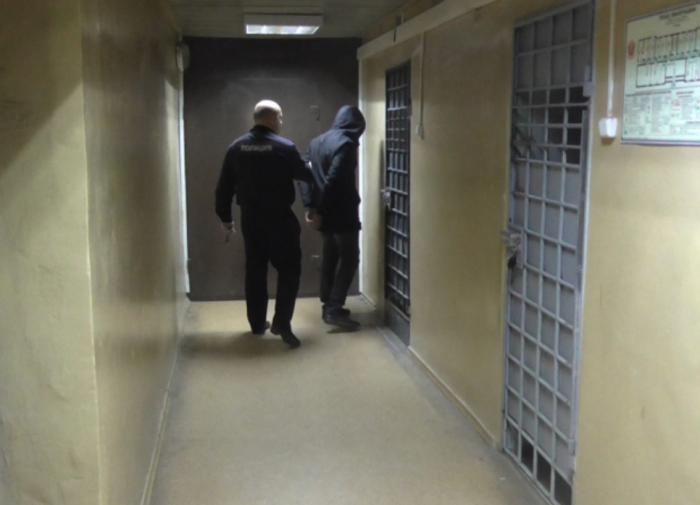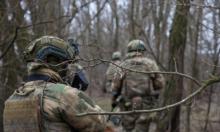The name of Andrei Chikatilo, USSR's most sinister serial killer, still makes blood chill in the veins
On November 20, 1990, Andrei Chikatilo, probably the most notorious serial killer that the USSR had ever seen, was arrested as he was walking home from a polyclinic in the city of Novocherkassk. At the trial, Chikatilo tried to pretend to be an individual who suffered rom mental derangement. However, the court found Chikatilo guilty of a string of murders and sentenced him to death.

On the day of his arrest (November 20, 1990), Andrei Chikatilo was 54 years old. He had been committing his hideous crimes for more than ten years in the Rostov region, in Ukraine, in the Moscow region and other regions of the USSR. He was charged with 36 premeditated murders committed with extreme cruelty. Subsequently, Chikatilo confessed to 53 murders. It was established that Andrei Chikatilo sexually assaulted, killed and mutilated 65 people - women and children. He killer would rape his victims and mutilate their corpses. Chikatilo would cut off his victims' genitals, breasts, tongues as they were still alive, so that he could eat those organs later.
When searching for the serial killer, investigators checked more than half a million people. Chikatilo was first arrested on September 14, 1984 at the Central Market in Rostov-on-Don. However, the man with a briefcase containing a bizarre set of items (a knife, a jar of vaseline, soap and rope) had to be released. It was found as a result of forensic examination that samples of his biomaterials did not match those previously found at a crime scene. Therefore, the police concluded that Chikatilo was not involved in the murders.
Due to a fatal error, Chikatilo continued his atrocities for another six years, while working as a teacher of Russian language and literature. In early 1985, Chikatilo and his family moved to Novocherkassk. He managed to get a job as an engineer at the Novocherkassk Electric Locomotive Plant. In the meantime, law-enforcement agencies, under the control of the Central Committee of the Communist Party, launched a massive search operation called "Forest Strip." The operation was called so, because most of the mutilated corpses were found in woody areas. Chikatilo was watching the investigation of his crimes closely, while taking appropriate security measures. The maniac even took part in the operation as a volunteer.
Chikatilo killed his last victim on November 6, 1990. Having stabbed the body of 22-year-old prostitute Svetlana Korostik in the forest, he bit off the tip of her tongue and nipples, cut out her genitals, covered the corpse with soil and fallen leaves and headed to "Leskhoz" railway platform in the Rostov region. The strange-looking man with a bag and leaves stuck to his clothes attracted policeman's attention. The officer, Igor Rybakov, checked Chikatilo's documents' but released him. Svetlana Korostik's body was soon found near the platform, where the officer checked Chikatilo's documents.
The police started spying on the suspect and found his behaviour very suspicious. For Chikatilo established external surveillance. The assault group to capture the suspect was headed by Vladimir Kolesnikov, who later rose to the rank of First Deputy Minister of Internal Affairs, Deputy Prosecutor General of Russia and Deputy Minister of Justice.
Andrei Chikatilo was arrested in the afternoon of November 20, 1990.
That day, he took time off from work to go to the polyclinic, complaining of pain in his finger. He had his finger bitten by a teenager, whom he had killed earlier. The X-ray examination revealed that the finger was broken: the finger was plastered and bandaged. On the way home, the maniac decided to buy a beer. Near the kiosk, Chikatilo tried to meet a teenage boy, but the latter did not show any interest in the man. The killer turned to another boy, but the attempt failed again. Some time afterwards, three officers - Vladimir Kolesnikov, Anatoly Evseev and Vladimir Pershikov - blocked Chikatilo's way and arrested him.
Chikatilo's criminal case counted 220 volumes. The trial began on April 14, 1992. The killer tried to withdraw his testimony, stating that he had signed it by mistake. In the courtroom, Chikatilo tried to portray insanity: he would shout, bare his genitals, insult the judges, the public prosecutor and those present in the hall.
On October 14, the court started announcing the verdict and finished doing it the following day. Chikatilo was sentenced to death by shooting.
"When sentencing Chikatilo, despite any mitigating circumstances, given the monstrous atrocities that he committed, the judicial panel cannot but appoint him the only punishment that he deserves - capital punishment," the court ruling said.
From the court, Chikatilo was taken to the Novocherkassk isolation ward, where death sentence inmates were held.
During the entire period of his detention, he wrote complaints against the judge and the investigation to party organs and editorial offices of central newspapers. He also wrote petitions for pardon addressed to Russian President Boris Yeltsin.
His last petition was rejected on January 4, 1994. In his letter, Chikatilo pointed out that he had worked for the good of the country for 40 years, lived a difficult working life under the "communist tyranny" and dreamed of living in a new and free Russia, and "the criminal case, where he is defined as a rapist, murderer and cannibal, was completely fabricated and there was no evidence of his guilt."
"I ask you to let me live," the last line of his last petition said.
The execution took place on February 14, 1994.
That day, the weather was freezing, it was -17 degrees Centigrade. The killer was taken from prison in a UAZ vehicle. He was convoyed bareheaded and handcuffed. The group - Chikatilo, convoys security guards and the prosecutor arrived at the site of the execution in about an hour. A doctor, a building superintendent and a representative of the Internal Affairs Directorate were waiting for the group to arrive. Together with the guards, all the people descended into the basement. Chikatilo sat on his knees on the floor.
His face is clean shaven, his gray hair was messy. Outwardly, Chikatilo was calm. He probably believed the guards, who earlier told him that he was being taken to Moscow for examination.
The prosecutor, who supported the prosecution in court, entered the basement. He and Chikatilo started talking. The state prosecutor checked the prepared documents: the verdict, the ruling and the order of the court, the decree signed by President Yeltsin on January 4, 1994. The killer was asked if he knew the contents of the paper. Chikatilo got nervous and wondered: "What, did he refuse?".
"Listen, I will read it out to you," the prosecutor said. There were just a few lines in the decree. Chikatilo listened to the text of the decree silently, but did not say anything at all. The prosecutor read the decree again. Finally Chikatilo asked: "So what, are they going to shoot me now?" All people in the room were silent, and the prosecutor then said in a hoarse voice: "Execute the sentence." Another door in the room silently opened. The guards turned the killer towards the door and pushed him to it. Chikatilo made a few steps and disappeared in another room, where someone fired a gun to kill him.
Subscribe to Pravda.Ru Telegram channel, Facebook, RSS!




